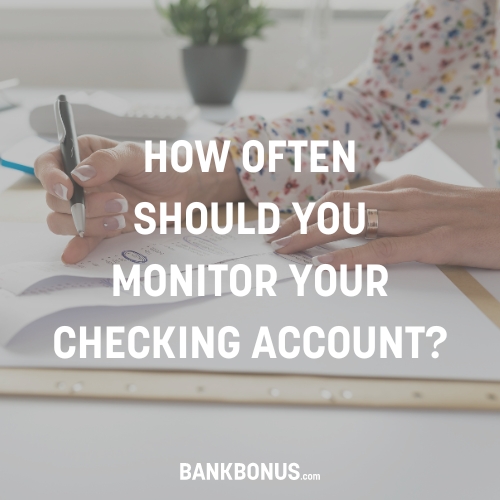You might wonder how much interest you’ll earn per month on $1 million and if you can live off of it.
Like all personal finance decisions, many factors determine how much you would earn on $1 million. Here’s everything you must know to see if your $1 million can generate enough interest for your financial goals.
How Much Interest Will I Earn on $1 Million Dollars?
How much interest you earn per month on $1 million depends on how you save or invest it. No two savings or investment products pay the same rates.
For example, the following investments average annual interest of:
- High-Yield Savings Accounts Paying 5%: $50,000
- Traditional Bank Accounts Paying 0.43%: $4,300
- REITs Paying 10.8% Average: $108,000
- Stocks Paying 10.35% Average: $103,500
How much interest you earn depends on your risk tolerance and how liquid you need the funds.
For example, traditional and high-yield savings accounts (HYSAs) are the most liquid but have the smallest returns, whereas stocks and REITs pay much more on average but have a much higher risk.
Interest vs. Returns
There’s a big difference between interest and returns. Understanding how much you could earn and the risks can help you choose the right way to invest your $1 million.
Interest-bearing investments are less risky and less stress-inducing. You know how much you’ll earn and usually have little to no risk of losing money.
For example, you know the interest rate you’ll earn on a HYSA or Certificate of Deposit (CD). You invest the funds in exchange for the promised rate. The bank or financial institution will dictate how often the interest compounds, such as annually, monthly, or daily, and how often they pay interest. If the HYSA pays 5% annual interest, you will earn $50,000 a year, but if the bank pays interest monthly, you will earn $4,166.67 monthly.
On the other hand, if you invest in stocks or ETFs, you don’t earn a predetermined interest rate. Instead, you may earn returns.
It sounds like a tradeoff, but on average, returns pay much more than interest over a longer period. Investments that pay interest pay an average of 1% to 5%, whereas assets that pay returns average 4% to 5% annually.
Factors Influencing Interest Earnings on $1 Million
Many factors affect your interest earnings on $1 million, some which you can control and others that you have no control over:
- Interest Rate: The APY earned affects how much interest you earn and can fluctuate. There’s no guarantee the high APY you’re quoted today on an HYSA will be the same one year from now
- Compounding Frequency: The more frequently interest compounds, the more interest you’ll earn. For example, daily interest compounds 365 times a year, whereas annual compounding only occurs once yearly
- Investment Duration: The longer you commit to an investment, the more interest you’ll earn. For example, leaving funds invested for five years with annual compounding allows funds to compound five times, whereas withdrawing funds after one year only allows interest to compound once
- Inflation: If inflation rates exceed your interest rate, you lose money rather than earn it. Monitor inflation rates and adjust your investments to keep pace or beat inflation
- Taxes: You’ll likely owe taxes on your interest earnings, which can decrease your profits. Your tax rate depends on your total income and current tax bracket, as interest earnings are ordinary income on your tax returns
Best Investment Options To Earn Interest on $1 Million
So, how do you decide where to invest $1 million dollars? Every investor has different investing needs and risk tolerances. The key is determining your long-term goals, how much risk you can handle, and what investments you’re comfortable handling.
High-Yield Savings Account
HYSAs are risk-free as long as the bank is FDIC-insured. However, your deposits are insured up to $250,000 per depositor or $500,000 if you own a joint account.
It’s best to keep your $1 million at different banks because you may exceed the FDIC coverage.
HYSAs are a good option for anyone looking for a risk-free investment with predictable earnings. At 5% APY, you can earn $50,000 in interest on the full $1 million or invest a portion of your funds in an HYSA and diversify the rest.
¹Annual Percentage Yield (APY) is accurate as of 1/17/2024 and subject to change at the Bank’s discretion. The minimum deposit required to open an account is $500 and a minimum balance of $0.01 is required to earn the advertised APY.Certificate of Deposit
CDs lock up your funds for a predetermined period. Banks offer CDs in various terms starting at one month up to 10 years. Each term pays a different APY. Some banks pay more interest for longer terms or have specials for specific CD terms.
It’s important to lock up your funds for as long as possible. If you withdraw the funds early, you will likely pay a penalty equal to three months of interest.
Like HYSAs, CDs are low-risk if you open a CD at an FDIC-insured bank, but again, each depositor gets coverage for up to $250,000 or $500,000 in joint accounts.
Stock Market
Investing in the stock market provides returns, not interest. You take a higher risk, but the reward can be greater, especially if you leave your funds invested long-term.
Historically, stocks pay 10.35% over ten years, giving you an average return of $103,500 if you diversify your portfolio and stay invested. However, there’s no guarantee you’ll see these types of earnings, so it’s important not to put all your eggs in one basket.
Invest a portion of your $1 million in stocks for some aggressive earnings, but keep a portion conservatively invested to offset the risk.
Real Estate
Real estate is a great way to diversify your portfolio. It can offset the risk of the volatile stock market and is often a hedge against inflation.
There are many ways to invest in real estate, including buying physical real estate to manage and rent or properties to fix and flip for a profit. If you don’t want to handle physical real estate, you can invest a portion of your $1 million in real estate investment trusts (REITs).
REITs are investments in real estate companies. These companies buy, manage, and sell real estate properties, selling company shares to investors.
REITs pay 90% of their profits back to shareholders, allowing anyone to invest in real estate without the responsibility of managing it.
Mutual Funds and Exchange-Traded Funds (ETFs)
Mutual funds and ETFs are automatically diversified investments chosen and managed by fund managers. Mutual funds are actively managed and have higher fees but are passive for the investor, and ETFs are passively managed and have fewer fees.
Mutual funds trade only at the end of each trading day, and ETFs trade throughout the time the market is open.
Alternative Investments
Alternative investments are another way to diversify your portfolio for higher returns. Anything outside of stocks, bonds, and cash equivalents are alternative investments, including art, wine, hedge funds, futures, and cryptocurrency investments.
Each alternative investment has different risks and rewards. Using these investments to diversify your portfolio can help increase your earnings, but don’t rely on them alone to grow your $1 million.
INVESTMENT AND INSURANCE PRODUCTS ARE: NOT A DEPOSIT • NOT FDIC INSURED • NO BANK GUARANTEE • MAY LOSE VALUELearn more:
How To Calculate Interest on $1 Million?
Calculating interest on $1 million depends on many factors, including the following:
1. Identify the Investment Type and Terms
Each investment pays interest (or returns) in different intervals. Determine how long you must invest your funds and how frequently you’ll earn interest or returns.
For example, bank accounts typically compound interest daily but pay monthly, whereas bonds often compound and pay interest semi-annually.
2. Gather Investment Details
Each investment has different terms and details. Gather all the details, including any fees or early withdrawal penalties.
For example, if you invest in a CD for three years, you’d calculate the interest over three years unless you predict you’ll need the funds sooner and may be subject to an early withdrawal penalty.
3. Select the Appropriate Interest Calculation Method
You’ll earn either simple or compound interest, each of which has different formulas:
P x R x T
P x (1 + R/N)^nt
P = Principal
R = Rate
T = Time Invested
N = Compounding Frequency
4. Evaluate and Record the Results
Knowing the calculations, you can determine which investment will earn you the highest returns while considering your timeline and risk tolerance.
Typically, higher returns mean higher risk, so it’s essential to consider your risk of loss before investing your funds.
5. Example
Here’s a quick example to make it easier to understand.
You can deposit $250,000 in an HYSA, paying 5% compounded monthly for one year, or a CD compounded daily, paying 4.5% for one year.
Here’s how they compare:
- HYSA: $250,000(1+0.05/12)^12(1) = $262,790.47 or $12,790 in interest
- CD: $250,000(1+.045/365)^365(1) = $261,506.24 or $11,560 in interest
FAQs
What Is the Best Investment for a Million Dollars?
Each investor has different determining factors regarding the best investment for a million dollars. The suitable investment depends on your risk tolerance, goals, and how long you’ll keep the money invested.
If you want a conservative investment, consider HYSAs or CDs; if you want something more aggressive, consider stocks or ETFs.
Can You Live Off Interest of $1 Million?
How you invest your $1 million depends on whether you can live off it. For example, if you invest the money in a savings account, even at 5%, you’ll have $55,000 pre-tax income.
This may be suitable for a highly frugal lifestyle or for someone who can supplement with other income, but typically, you’ll need more than the interest of $1 million to survive.
How Much Interest Will I Get If I Put $1 Million in the Bank?
Your earned interest depends on the interest rate, compounding frequency, and time you’ll leave the money in the account. Assuming an average 5% return on HYSA or CDs, you’re looking at $55,000 per year in interest, not considering compounding interest.
How Much Interest Does $1 Million Earn per Year?
Using a 5% interest rate, you’d earn $55,000 per year in interest on $1 million. If you invest the money in something a bit riskier, you may have higher returns, or if you stick with a traditional bank account, you’ll likely earn much less.
How Much Will $1 Million Generate in Retirement?
How much $1 million earns in retirement depends on many factors, including the interest rate earned, compounding frequency, and timeline.
But it also considers the percentage of funds you withdraw annually to live during retirement. The average person uses the 4% rule, withdrawing 4% of the balance annually to make retirement funds last.
Where Can I Get Personalized Investment Advice for My $1 Million?
You can seek financial advice from a financial advisor, robo-advisor, or discount broker. Look for someone who works as a fiduciary so you don’t get biased advice and instead receive advice that is best for your situation and helps you reach your goals.
Is Interest on $1,000,000 Enough for Your Financial Goals?
$1 million may seem like a lot, but depending on the size and duration of your financial goals, you may need more.
Learning how to diversify your funds and investing a portion in riskier investments to get higher returns while keeping some funds conservative or liquid can help you reach your financial goals.






Comments are closed.
Comments are closed here.